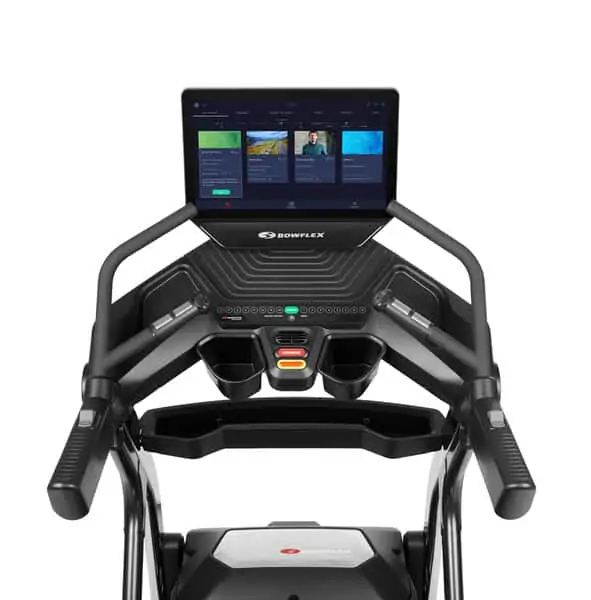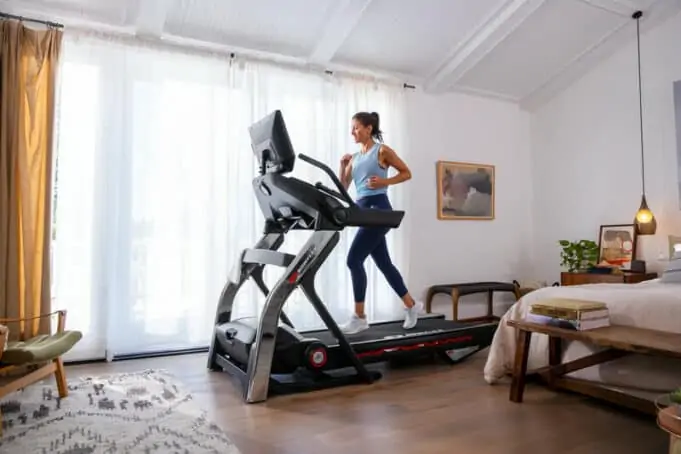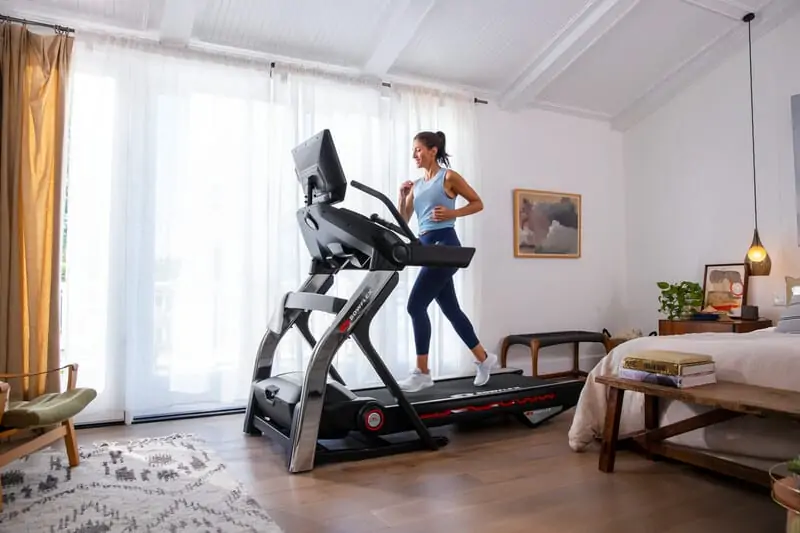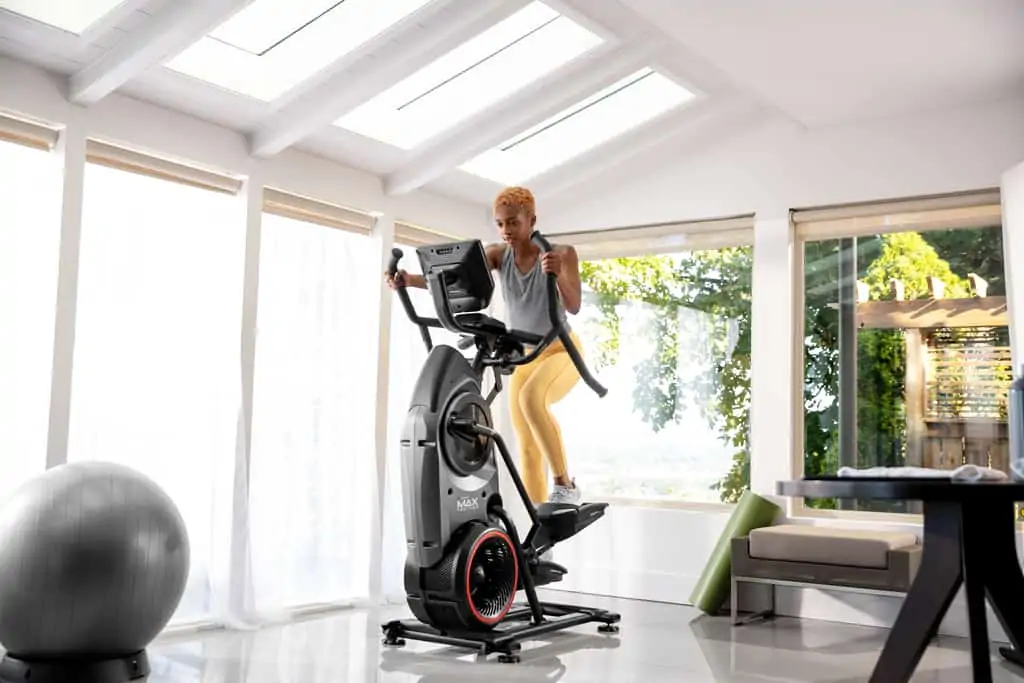Everyone is coming for your home gym. And in the process looking to take some market share from Peloton.
The trend continues as Nautilus, Inc. (NYSE: NLS) has announced a pair of Bowflex “connected” cardio machines aimed at us living in the new, eternal work-from-home reality.
First up, a treadmill. Priced at $2,699 (USD) the T22 has a large built-in 22″ HD touch screen, and supports speeds up to 12mph. In addition there’s motorized decline/incline and a folding system with wheels making it easy to move around your workout space. You can purchase the T22 direct from Bowflex, and according to the company it will also soon be available at retail locations (no specifics as of yet).
Bowflex T22 Treadmill
- Built-in 22″ HD touch screen to stream endless entertainment.
- Speeds up to 12 mph with Comfort Tech™ deck cushioning for a supportive landing.
- Motorized decline/incline (-5 to 20%) for a variety of workouts.
- Features a 22″ x 60″ running path for longer strides.
- Transport wheels to move the machine and a SoftDrop folding system to easily store around the home.
- Built-in media shelf with accessory tray, USB charging port and dual water bottle holders.
- Includes heart rate hand grips and a Bluetooth® heart rate armband for easy tracking.
- MSRP: $2,699 USD
Next is a combo elliptical stepper. For those who aren’t fans of a spin bike or treadmill this could be an interesting option.
The Bowflex Max Trainer M9 features a compact design, 10″ HD touch screen and 20 resistance levels. The M9 is coming later this month and sells for $1,999 (USD).
Bowflex Max Trainer M9 Cardio Machine
- Built-in 10″ HD touch screen.
- Blends the motions of an elliptical and a stepper into one unique workout.
- Variety of positioned handlebars for versatility.
- Steel resistance dial to easily crank up resistance levels (20) for workout difficulty.
- Transport wheels to easily store around the home.
- Built-in media shelf with accessory tray, USB charging port and dual water bottle holders.
- The compact footprint allows it to easily store around the home.
- MSRP: $1,999 USD
As for content, both the T22 and M9 integrate with the JRNY fitness platform. In addition to trainer-led workouts you can also access media content from providers such as Netflix, Hulu, Amazon Prime and Disney+. So if you enjoy working out while watching a show you should be all set.
Subscriptions for JRNY run $19.99 per month or $149 per year.

Stark Insider Take
Always good to see more competition and more choice out there for consumers looking to stay in shape will enduring COVID.
While spin bikes such as those from Peloton, Echelon, and NordicTrack get most of the headlines these days — and especially Peloton of course — it’s easy to forget there’s other ways to get a good workout without cycling. Treadmills and ellipticals are mainstays at gyms so it’s no surprise that companies such as Nautilus/Blowflex continue to expand their at-home footprint with more options.
Given the unique Bowflex M9 combination of elliptical and stepper there’s no direct competition from Peloton here. This is a cardio option clearly targeted at those who like to climb.
The Bowflex T22 does, however, target the Peloton entry treadmill. But, interestingly, is actually more expensive. The T22 costs $2,699 while the Peloton Tread costs $2,495.
So that’s an interesting decision.
Bowflex does have a brand name to be sure.
But Peloton is currently the top dog — at least in terms of PR and buzz.
And let’s not forget: Peloton also has very compelling content. Several of its instructors have become media darlings and Instagram breakout stars for a reason.
So that’s the big question here. Are JRNY classes as good and are they motivating and do they offer as much variety as Peloton? (note: with a 4.6/5.0 rating on the iOS app store it would appear that the JRNY app is excellent)
If a buyer is going to pay a premium then why wouldn’t they go for the most popular and most well-reviewed option?
In any case, for now at least, Nautilus, Inc. seems to be positioning the Bowflex in the premium category for at-home fitness. I think this decision is a smart move. There’s seemingly an infinite number of low-cost Chinese-made competitors for bikes, treadmills and various other machines (just search Amazon and you’ll discover an exploding market). To differentiate, sometimes you need to move (or remain) up-market, and hope that premium content will attract enough buyers vs. opting for a volume play.
Meantime, another storyline to follow in this space: with its new Fitness+ subscription model will Apple eventually introduce its own gym hardware (spin bike…)?




